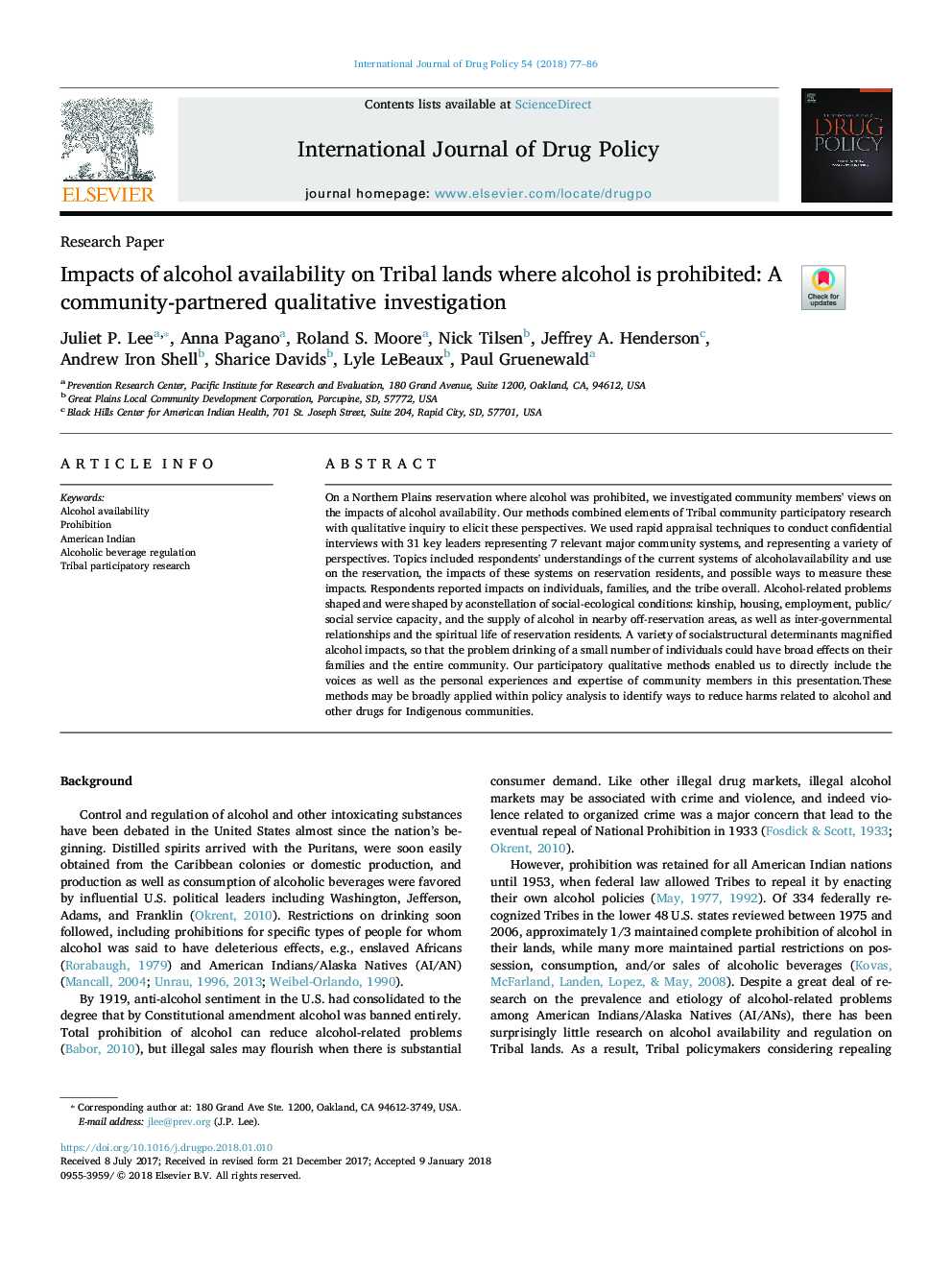| Article ID | Journal | Published Year | Pages | File Type |
|---|---|---|---|---|
| 7512071 | International Journal of Drug Policy | 2018 | 10 Pages |
Abstract
On a Northern Plains reservation where alcohol was prohibited, we investigated community members' views on the impacts of alcohol availability. Our methods combined elements of Tribal community participatory research with qualitative inquiry to elicit these perspectives. We used rapid appraisal techniques to conduct confidential interviews with 31 key leaders representing 7 relevant major community systems, and representing a variety of perspectives. Topics included respondents' understandings of the current systems of alcohol availability and use on the reservation, the impacts of these systems on reservation residents, and possible ways to measure these impacts. Respondents reported impacts on individuals, families, and the tribe overall. Alcohol-related problems shaped and were shaped by a constellation of social-ecological conditions: kinship, housing, employment, public/social service capacity, and the supply of alcohol in nearby off-reservation areas, as well as inter-governmental relationships and the spiritual life of reservation residents. A variety of social-structural determinants magnified alcohol impacts, so that the problem drinking of a small number of individuals could have broad effects on their families and the entire community. Our participatory qualitative methods enabled us to directly include the voices as well as the personal experiences and expertise of community members in this presentation. These methods may be broadly applied within policy analysis to identify ways to reduce harms related to alcohol and other drugs for Indigenous communities.
Related Topics
Health Sciences
Medicine and Dentistry
Psychiatry and Mental Health
Authors
Juliet P. Lee, Anna Pagano, Roland S. Moore, Nick Tilsen, Jeffrey A. Henderson, Andrew Iron Shell, Sharice Davids, Lyle LeBeaux, Paul Gruenewald,
